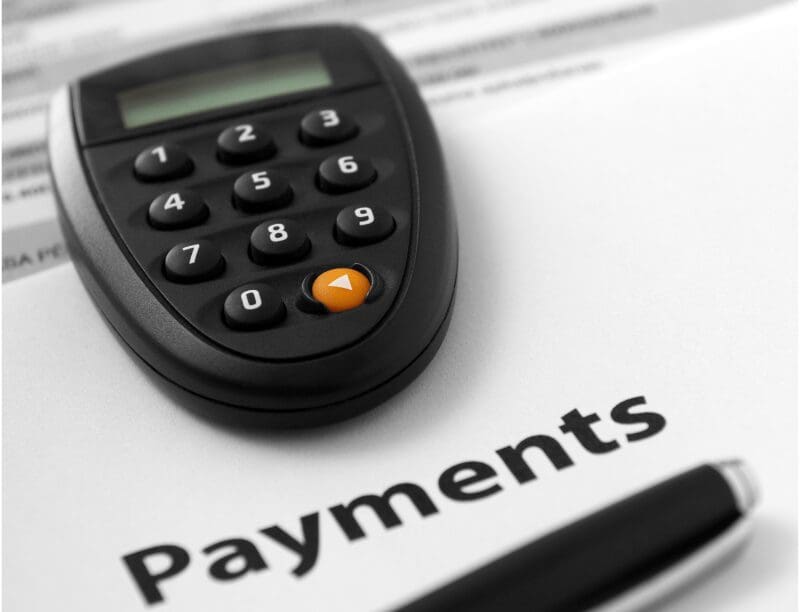A bank levy occurs when the IRS (Internal Revenue Service) seizes funds from your bank account to cover back taxes or other unpaid debts. Levies can be placed on other assets as well, but they are known as bank levies when they impact your bank accounts.
When the IRS levies your bank account, this is because you have ignored the agency’s notices for back taxes. The IRS will request that your bank freezes your account and will then take the funds it is owed after a certain period of time. When your bank account is frozen, you cannot deposit checks or make transfers or payments. You may also face bank fees. A bank levy is one of the last options the IRS uses after other collection efforts have been unsuccessful.
If you are dealing with a bank levy, it is important to know what to do next. Although many taxpayers may be tempted to ignore the issue, this is not a wise idea. You should address a bank levy as soon as you can to avoid catastrophic financial consequences.
What You Can Do About Bank Levies
If you receive notice that your bank account will be levied or if your account has already been frozen, you can still take steps to protect your finances. You should contact the IRS as soon as possible. The IRS must release a tax levy in the following circumstances:
- You paid back your tax debt in full.
- The collection period for an assessed tax ended before the levy was issued.
- The IRS determines that it will help you pay your taxes to release the levy.
- You begin an installment agreement or other payment plan, which includes the removal of the levy.
- The IRS determines that the bank levy imposes an economic hardship for you, and it prevents you from paying for basic expenses.
- The value in your bank account is more than the back taxes you owe, and the IRS has determined that releasing the levy will not prevent it from recovering the taxes it is owed.
If you request that the IRS release the levy under one of these reasons and they deny this request, you can appeal the IRS’s decision. This appeal can be made before or after levies are placed on your accounts. If the IRS seizes the funds despite one of these situations being true, you could file to have the property returned to you.
Even if you can have the bank levy removed successfully, you are still responsible for the owed back taxes. You must either pay the IRS or negotiate another payment plan. Otherwise, you may face another levy or different IRS collection method.
FAQs About Bank Levies
Can You Stop a Bank Levy After the Account Is Frozen?
A bank levy notice is delivered by mail. The day it arrives is considered the day the levy begins. You have 21 days from the day that you receive notice and your bank freezes your account funds. During this waiting period, you can take steps to attempt to have the IRS release the levy by:
- Negotiating with the IRS for a payment plan or other alternate solution
- Explaining any errors that were made by the IRS, which would mean you do not owe these debts
- Paying the debts you owe in full
If you do not do anything within those 21 days, the bank will send the full amount requested by the IRS from your bank account or accounts. A bank levy will not affect the funds you add after the levy was implemented. If the IRS wishes to claim those funds, it must begin a new levy order.
What Must the IRS Do Before Implementing a Bank Levy?
The IRS is required, in most cases, to take certain steps before levying a bank account. By law, the IRS must first:
- Assess your tax liability and provide you with a notice of your required payment
- Receive a decline, no payment, or no request for other arrangements from you
- Send a Final Notice of Intent to Levy, which allows 30 days to appeal or make arrangements before any actions are taken
If you have not taken any steps after 30 days to pay your debt, appeal the decision, or make a payment plan arrangement, the IRS can legally place the bank levy. If the IRS does not follow these legal requirements, the levy can be removed on the basis of procedural error. However, there are exceptions to this.
Exceptions to the IRS Being Required to Send You Notice
There are cases when the IRS is not required to provide you with a 30-day notice through a Final Notice of Intent to levy. These include:
- The IRS believes it may be unable to collect the tax because, for example, you are a suspected flight risk.
- The IRS intends to collect taxes you received from a state tax refund.
- The IRS served you a Disqualified Employment Tax Levy, which occurs when you have already had a hearing in the last two years about unpaid employment taxes before this tax period, and the upcoming levy is also connected to unpaid employment taxes.
In these cases, the IRS will issue the levy without the 30-day notice.
How Can a Tax Attorney Help With a Bank Levy?
A bank levy is a serious tax situation that can cause severe financial uncertainty. A tax attorney can help you resolve a bank levy by appealing, paying the debt, or negotiating an alternate payment. An attorney with years of tax law experience can determine the right option for your unique tax debt circumstance.
It is most effective to contact a tax attorney when (1) you are receiving notices about taxes you owe, (2) when you receive the Final Notice of Intent to Levy, or (3) during the 21 days in which you have to make arrangements with the IRS. If you wait until after the funds have been levied, a tax attorney may be unable to do much except in unique cases.
However, if the levy has not gone through, a tax attorney can help you negotiate an installment agreement, an Offer in Compromise, or another way to relieve you of your tax debt. If you meet one of the qualifications for the bank levy to be removed, such as financial hardship, a tax attorney can argue your case to the IRS. Your tax attorney can also help appeal the IRS’s decisions.
Can I Get the Money That Was Levied Back?
In most cases, you cannot get back money that was levied from the IRS. It pays back some or all of your unpaid tax debts. However, you may have requested the levy to be removed due to economic hardship. If the IRS should not have levied the account for this reason, there is a chance you could request to have your assets returned. Your tax attorney can provide you with more personalized tax information.
It’s more effective to deal with the problem before the funds are levied. You can do so within the 30 days after the final notice and during the 21-day waiting period after you have received notice that your account was frozen.
What If My Bank Charged Me for an IRS Error?
If you fully paid back the taxes you owed, and your account was still wrongfully levied, or you were charged a processing fee by your bank, you could recover this fee. The following must be true to recover the fee:
- The IRS was at fault for the error,
- You did not contribute to the continuation of the error, and
- Prior to the levy, you responded to IRS contact and requests for information in a timely manner.
If all of this is true, you can fill out and submit Form 8546, Claim for Reimbursement of Bank Charges, and mail it to the IRS address on the levy you received.
How Can Payment Plans Help?
Two common forms of settling your IRS tax debt through alternate methods are an Installment Agreement and an Offer in Compromise.
An Installment Agreement is a payment plan that enables you to pay the debt in small monthly amounts rather than requiring a large lump sum. These small amounts depend on the amount you owe and require you to remain on top of all current and upcoming taxes.
An Offer in Compromise occurs when a taxpayer can settle their tax debt for an amount less than they owe. This may be paid in a lump sum or periodic payment. A tax attorney can help you determine what plan is most beneficial for your situation.
Delia Law Can Help With Your Bank Levy
When you are facing a potential bank levy, you must take action quickly. Depending on the severity of your back taxes, you could lose all the funds in one or more bank accounts. At Delia Law, we can help you find the right solution to your tax issues.
If the levy places you in financial hardship, we can work to have the IRS remove the levy. If you are unable to pay back the debt, our team can determine whether you qualify for a relief program or payment plan and negotiate those options with the IRS. We work to understand your individual situation and walk you through each step of the process to resolve your tax debt. Contact Delia Law today.










